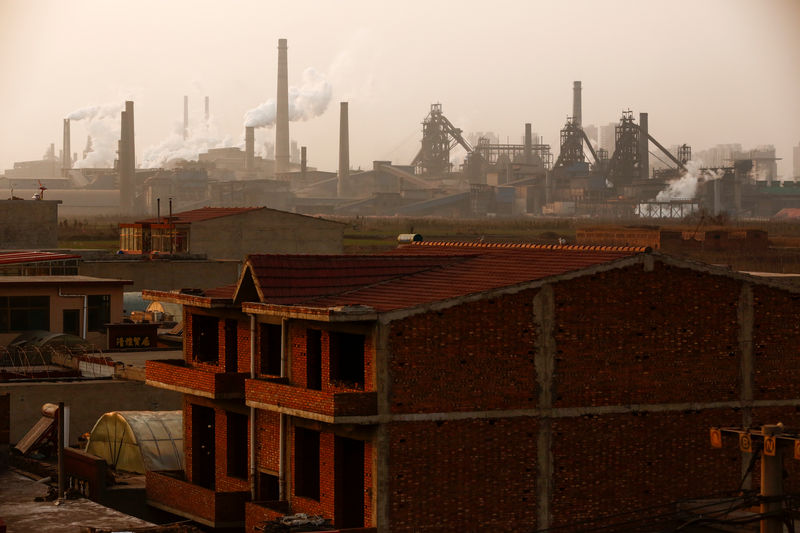SHANGHAI (Reuters) - China's Hebei province, the country's biggest steel producer, will force all its mills to comply with strict new emissions standards by 2020 as part of its campaign against air pollution, according to newly published industry guidelines.
In a policy document, the provincial environmental protection agency said newly built steel producers will be forced to comply with "ultra-low" emissions restrictions starting from 2019, while existing firms will be given until October 2020 to meet the new standards.
Particulate matter emissions will need to be kept within 10 micrograms per cubic metre, sulphur dioxide within 35 micrograms and nitrogen oxides within 50 micrograms, according to the document, which has been circulated by industry consultancies and reviewed by Reuters.
The new standards are more stringent than the state limits, which stand at 40, 180 and 300 micrograms respectively.
Hebei province, which surrounds the capital Beijing, is routinely the location of six of China's 10 smoggiest cities, and has been on the front line of the country's war on pollution, now in its fifth year.
As part of the campaign, it has shut down or suspended millions of tonnes of steel and cement production capacity, curbed coal consumption and imposed restrictions on traffic. It has also set up reward and punishment mechanisms in order to encourage local governments to comply.
The province aims to bring concentrations of hazardous floating particles known as PM2.5 to 55 micrograms by 2020, down from 65 micrograms last year, although still above the state standard of 35 micrograms.
According to data published by the provincial government on Monday, average PM2.5 levels in Hebei stood at 31 micrograms in September, down 40.4 percent on the year, and the lowest monthly level on record.
